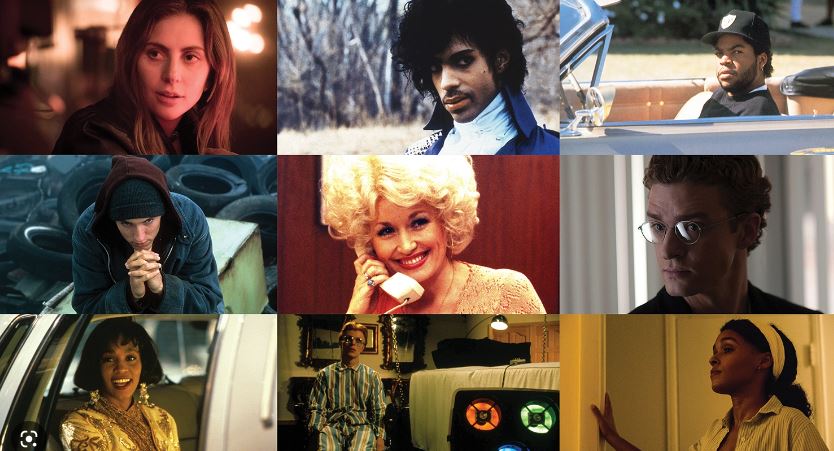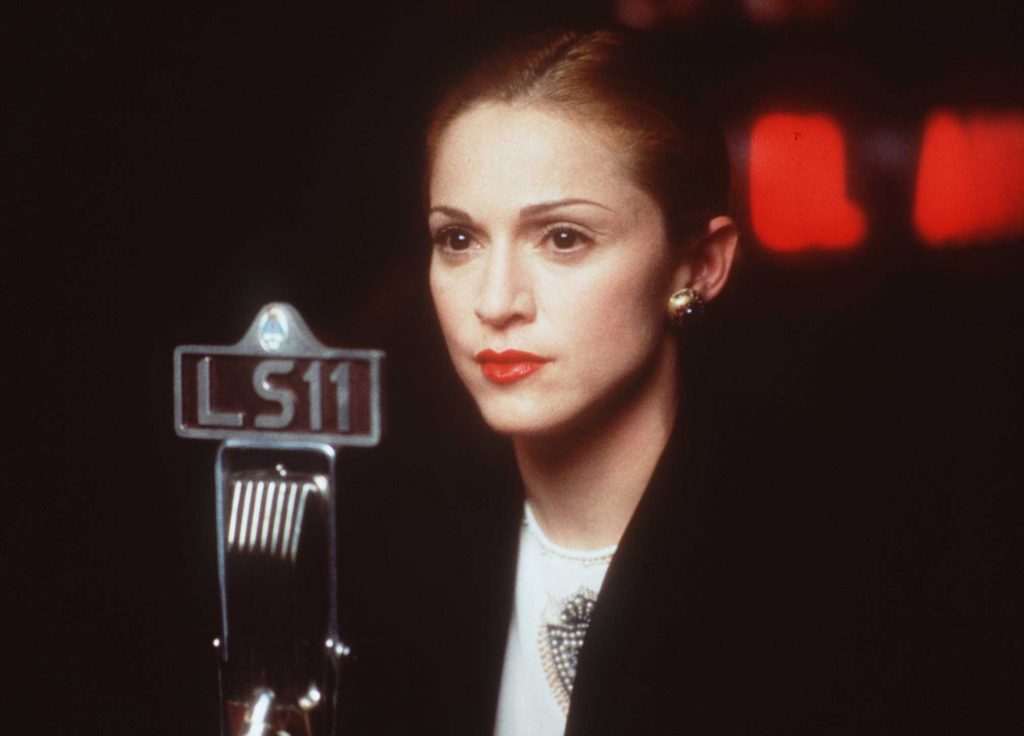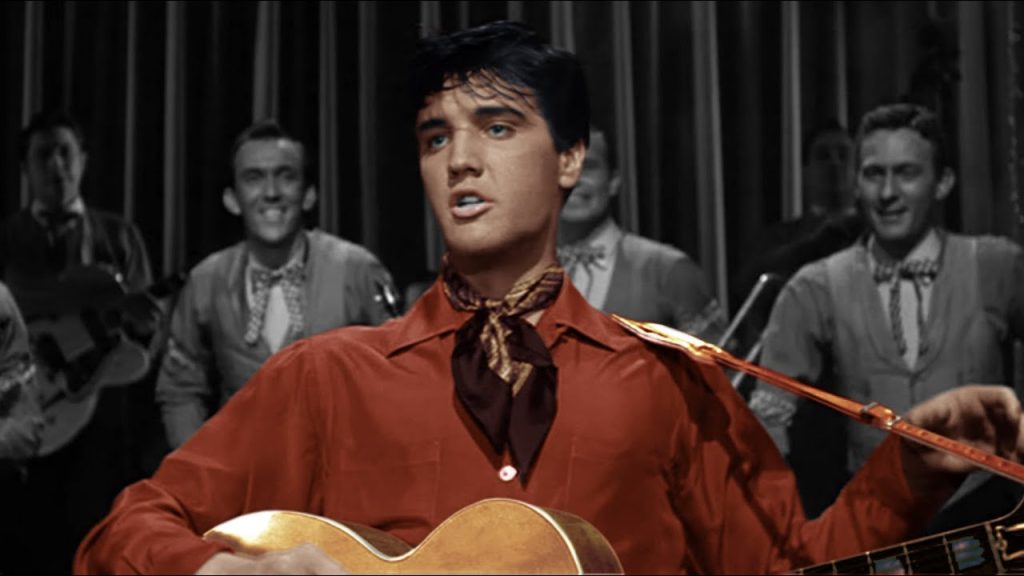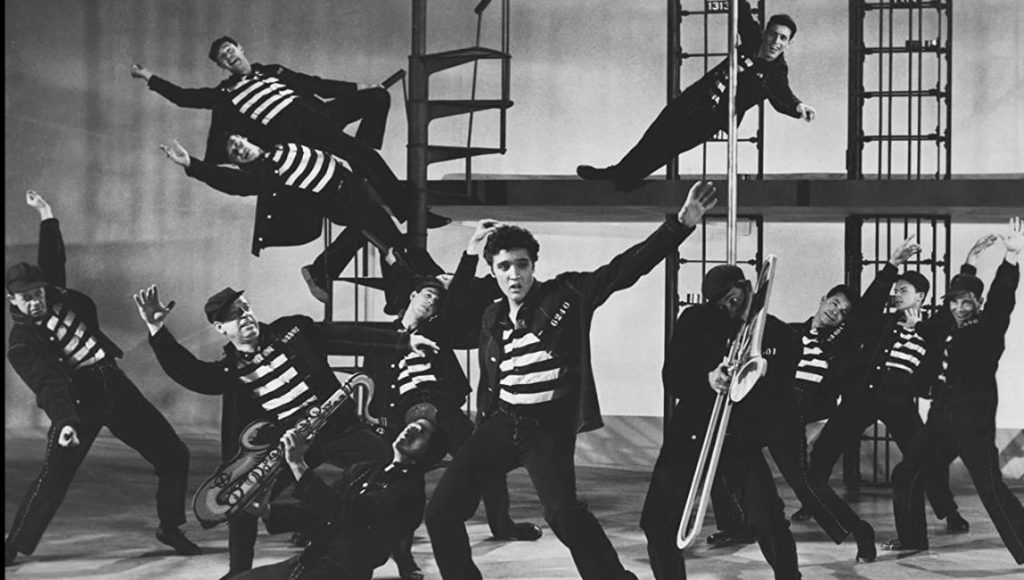
From Bing Crosby’s silky crooning in The Road to Singapore to Mark Wahlberg’s seven-inch, floppy rubber cock in Boogie Nights, it’s clear that the musical stars of the day have always fancied their big screen chances. Perhaps after topping the charts it’s the most natural of moves. Then again, maybe such success merely prompts their insatiable egos to crave box-office validation, cinematic immortality and world domination. Or as a steely-eyed Madonna puts it during that artistic treasure Shanghai Surprise: “You have no idea of the depth of my determination.” This no doubt Herculean effort to conquer both fields explain why I’m neither a pop star nor movie idol; such pursuits are bound to get in the way of my afternoon nap.
Despite her Golden Globe for Evita, the aforementioned Madonna is, of course, a prime example of how ridicule-inducing such celluloid adventures can go. Not that she’s alone. Just catch the legendary Bob Dylan twitching and scampering through the mid-seventies western Pat Garrett and Billy the Kid, looking so confused that his expression often resembles a horse trying to work out why someone has shat in its nosebag. You could also take a peep at the equally legendary Vanilla Ice riding into town in Cool as Ice almost matching Clint Eastwood’s smoldering intensity and yen for havoc in High Plains Drifter, albeit with fluorescent clothing and a reverse baseball cap.

However, although big shots such as Barbra Streisand, Cher or Will Smith tend to mix mediocrity and outright crap, it doesn’t stop those fickle gods of fortune rewarding them with Oscar glory. Win or lose, it’s pretty easy to tell that the world will never be enough for some of these musician-actor types.
Sinatra in From Here to Eternity (1953), Suddenly (1954), The Man with the Golden Arm (1955), The Manchurian Candidate (1962) & Von Ryan’s Express (1965)
The WW2 drama Eternity was a big Oscar winner with Sinatra a beneficiary. It’s aged poorly, its one-time racy elements now not even noticeable amid the lukewarm soap suds. Sinatra’s a flaky but hard-headed soldier in Hawaii, although he’s so scrawny he looks like a glorified boy scout. His performance as a ‘tough monkey’ picked on by ‘fatso’ Ernest Borgnine is barely adequate, not helped by a script that requires him to be half-cut most of the time. A late attempt at pathos falls comically flat. Frankly, that Best Supporting Actor Oscar suggests Sinatra got his Italian mates to make the Academy members an offer they couldn’t refuse. Eternity is a meandering, unconvincing pic that even stuffs up the Jap assault on Pearl Harbor by not only tacking it on the end but making it appear less significant than the love lives and careers of some self-absorbed bores. It does a good job, however, of reminding me that the army must be the most ridiculous organization on Earth.

Sinatra provided support in Eternity but he’s center stage as a dapper villain in the comically bad, suspense-free Suddenly. He wants to assassinate the president, taking over a suburban home that provides a perfect vantage point after somehow learning of Eisenhower’s planned train stop at a no-name Californian town. Not long afterward he’s revealed his unmarried parents were alcoholics that dumped him in a children’s home, he killed 27 men in WW2, and he’s all out of the milk of human kindness. “Show me a guy with feelings,” he barks, “and I’ll show you a sucker!” Now he’s gonna gun down America’s top dog for a shit load of cash from a mysterious employer because Eisenhower is ‘just another man.’
Unfortunately, the most telling moment arrives when the name of John Wilkes Booth (a stage actor and Abraham Lincoln’s killer) is brought up, prompting Sinatra to retort: “I’m no actor!”
Hmm….
Can you tell I’m not warming to this guy’s thespian abilities? He’s so small for a start. In every scene with cop Sterling Hayden he’s cricking his neck to look at his face. Sinatra’s tough guy character is far too composed and talkative, not helped by flat direction and a theatrical feel. Even an eight-year-old child yells at him: “You stink!” Sinatra doesn’t give off the slightest air of danger, gun in hand or not.

Sinatra, more than a decade into his movie career by 1955, proves much better as a guilt-ridden, twitchy loser with a nutso wife in the Chicago-set Man with the Golden Arm. Here he drops the absurd tough guy act and instead plays an ex-con addict trying to make good while surrounded by hustlers, drunks, strippers, card sharks and unsympathetic cops. “The monkey’s gone,” is the first thing he says to a mate upon his release from clink, but that’s a moot point given he now lives in the same neighborhood as his former dealer, Louie (Darren McGavin). “Monkey’s never dead,” Louie tells him. “You kick him off, he just hides in the corner waiting his turn.”
Golden Arm is surely one of Hollywood’s first depictions of drug addiction, even if the word ‘heroin’ is oddly never used (whereas ‘fix’, ‘hooked’ and ‘junkie’ are). It’s a tad overlong, occasionally clunky and features one amusingly OTT performance, but I otherwise enjoyed its gallery of lowlifes and depiction of 50s drug use. Louie might be an arch manipulator, but he’s also suave and intelligent. Apart from that, he thoughtfully provides a syringe, spoon, and his own apartment to shoot up in. He even does the injecting himself, all for a few bucks. A quite splendid service, really, and I think today’s dealers could learn a thing or two from such old-fashioned chivalry.
After heading an ensemble cast in the financially successful, overlong and hideously dull heist flick Ocean’s 11, Sinatra went onto play a brainwashed soldier returning from the Korean War in the well-regarded political thriller The Manchurian Candidate. Like amnesia, I find cinematic depictions of brainwashing, such as Shutter Island and Get Out, awfully hard to swallow. The McCarthy-flavoured Candidate plays like a boring, daft as fuck combination of a hypnotist’s seaside magic show and a padded, below par Twilight Zone episode. There’s also very little action, although we do get a nightmare-afflicted Sinatra karate-chopping his way through a table in yet another unconvincing display of machismo. This leaves us to be entertained by Ol’ Blue Eyes wandering around sweaty, shaky and half-dazed like a Commie-programmed puppet-robot suffering a nervous breakdown. Honestly, if you want a bit of dry-cleaned brain action, you’re better off with John Hurt in 1984 or the first season of Showtime’s Homeland.

Much better is Sinatra’s biggest 60’s hit, the straightforward, well-directed Von Ryan’s Express. Here he plays a downed pilot imprisoned in an Italian POW camp in 1943. At one point I was steeling myself for things turning into a Great Escape knockoff in which a brown leather jacket-clad Sinatra tries to emulate Steve McQueen. Them’s too big boots to fill, Frankie. Wisely, the flick heads in a different direction when those wishy-washy Eyeties capitulate and a resourceful Sinatra and his merry band of men commandeer a north-bound train. Express has some faults, like people getting knocked cold/killed too easily or being unable to decide whether machine gun fire causes a victim to bleed. I also wasn’t keen on a wimpy chaplain donning the enemy’s uniform at key points to impersonate an authoritarian German commander (and provide some laughs). Still, Sinatra’s antics are easy to digest and I quite like the scene where he struggles to hold onto his professional resolve as an Italian floozy slips on a pair of stockings in front of him. Express isn’t as good as Frankenheimer’s 1964 classic, The Train, and lacks the flair and cool characters of favored WW2 romps, such as Kelly’s Heroes and Dirty Dozen, but its martial score, convincing production values, occasional bite and action-packed finale make it perfectly watchable.

Elvis in Jailhouse Rock (1957) & King Creole (1958)
There’s a scene in True Romance where Christian Slater admits that if he were forced to shag a man, he’d pick Elvis.
Fair enough.
Let’s face it: Elvis was a handsome dude, almost as desirable as Dolph Lundgren in Rocky IV.
Or so I’m told.
Elvis wasn’t just a good-looking bastard, though. This hugely talented upstart dripped charisma, created groundbreaking music, and developed a cult of personality that is likely to last as long as western civilization.
But could he act and make good movies?
Well, to begin with, yes. Like the rest of his life and career, it all became bloated, mediocre, insane and too much, but the guy fucking well rocked in his early days. Take Jailhouse Rock. Its main surprise is that it doesn’t go as expected. It’s a straightforward narrative, but at the same time it isn’t some fawning, glorified pop promo.
Elvis plays Vince Everett, a bloke that soon finds himself in mighty big trouble for inadvertently beating to death a lady-abusing twat in a bar. In its fast-moving opening quarter of an hour we get a well-staged fight, incarceration, and news that a coast-to-coast TV show is going to be broadcast from the prison two and a half minutes after Vince arrives. Vince struts his stuff in front of the cameras and the next day the place is flooded with fan mail from fifteen-year-old girls, happy to reveal their vital statistics and phone number. Hmm, wonder if any were from Priscilla…
Vince has a palpable edge. He’s impulsive, confrontational, sullen, sneering, testy, rude, arrogant and sarcastic. Just like me on a good day. He’s also very loose with his fists, happy to punch out any guy in the way whether that’s a screw or a record label boss. As for the ladies, he calls a woman he’s just met in a bar ‘pretty well stacked’ while a fair bit of the time he appears to be staring at their tits with heavy-lidded appreciation. “How dare you think such cheap tactics would work with me,” one girl objects after he grabs her on the street and forcibly pashes her. “They ain’t tactics, honey,” he replies. “That’s just the beast in me.”

Rock on.
In King Creole he’s an overage New Orleans school kid and ‘pretty fresh boy’ on the cusp of crime, a singing career and bedding two hotties. Like Vince Everett, he’s rebellious and handy with his fists, although that doesn’t stop an occasional slide into melodrama and corniness. Just watch him stride into a five and ten store armed with a guitar. He so mesmerizes everyone that no one notices his accomplices nicking everything from wristwatches to a bicycle. Still, King Creole is an enjoyable watch with some nicely drawn characters.
Things hot up when this singing busboy crosses paths with laconic gangster Maxie Fields (a young Walther Matthau) who’s not beyond jealously telling his hard-drinking girl: “I’ll break every finger you got.” Matthau is terrific and I did enjoy him smashing a chair over Elvis’ head. Then again, Elvis does well against more experienced actors. Indeed, Creole might be his best-ever shift. He nails each scene whether telling a girl at the local cathouse that she’d have to pay him or wielding a pair of broken bottles against some local hoodlums. And if you’ve got any doubts about the guy’s magnetism take a gander at him jumping on a bar and launching into Trouble accompanied by a black, bowler-hatted backing band while busting out those suggestive moves.
The sixties lay gaping before Elvis, a decade in which he employed a Nic Cage-like work rate to pump out twenty-seven movies. And if you think I’m gonna sit through that avalanche of tosh after the fun Jailhouse and Creole, you’ve got another thing coming.
Dave Franklin’s movie guide Go Fuck an Iceberg! A Brit’s Take on Guns, Tits and Other Fun Movie Stuff is now on sale at Amazon.